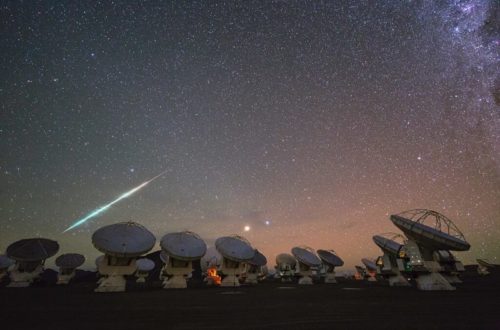What Is Time? Does it Even Exist?

In the late 1600s, when Newton published his book Philosophiæ Naturalis Principia Mathematica, he stated that time is absolute and is the same for everyone, no matter in which state you are in this universe. But in the early 1900s came Einstein with his theory of relativity, stating that time is relative from person to person, depending on which state or part of the universe they were in. Since then, our understanding of time has completely revolutionized, but we are still oblivious to the fact of what time actually is—is it something very fundamental which exists in this universe, or is it just an illusion?
Einstein’s theory of special relativity tells us that time passes for everyone, but doesn’t always pass at the same rate for people in different situations, like those traveling close to the speed of light. Later, his general theory of relativity showed that gravity also affects time—people orbiting a supermassive black hole would experience time more slowly than someone far away from it. Einstein resolved the malleability of time by combining it with space to define space-time, which can bend but behaves in consistent, predictable ways. His theory seemed to confirm that time is woven into the very fabric of the universe. But there’s a big question it didn’t fully resolve: why is it we can move through space in any direction, but through time in only one? No matter what we do, the past is always, stubbornly, behind us. This is called the arrow of time.
Arrow of time
Why is it that we cannot bend or twist time? Why is it that time has a positive vector and we can only remember our past but not the future? In physics, this could be described by the Second Law of Thermodynamics, which says that systems will gain disorder, or entropy, over time. Systems in our universe tend to move from order to disorder, and it is that property of the universe that could define the direction of time’s arrow. For example, if you leave your room with a pile of papers stacked together neatly and re-enter it after some time, then you might not be shocked to see those piles of papers losing their order and spilled all over the place. But if you leave the same room with those papers knocked all over and re-enter it to encounter a pile of neatly stacked papers, then surely you will be taken aback. This is entropy—stating that objects, atoms, or matter tend to become more disordered with time, even if local exceptions can happen due to random fluctuations.
Recent studies in cosmology have even linked this arrow of time to the very beginning of the universe. The Big Bang started with extremely low entropy, and ever since then, disorder has been increasing. Some researchers think that this special initial condition might be the key to understanding why time flows forward.
Is time merely an illusion?
So could it be possible that time doesn’t exist, at the most fundamental level? Could time just be some sort of illusion generated by the limitations of how we perceive the universe? We don’t yet know, but maybe that’s the wrong way of thinking about it. Instead of asking if time exists as a fundamental property, maybe it could exist as an emergent one. Emergent properties are things that don’t exist in individual pieces of a system, but do exist for the system as a whole. Each individual water molecule doesn’t have a tide, but the whole ocean does. A movie creates change through time by using a series of still images that appear to have a fluid, continuous change between them.
Flipping through the images fast enough, our brains perceive the passage of time from the sequence of still images. No individual frame of the movie changes or contains the passage of time, but it’s a property that comes out of how the pieces are strung together. The movement is real, yet also an illusion. Could the physics of time somehow be a similar illusion?
Some physicists think so. There are modern ideas in quantum gravity that suggest time might not be a fundamental ingredient of the universe. Researchers like Carlo Rovelli have proposed that time may be a relational concept—that is, it only makes sense when objects interact. Others, like Julian Barbour, argue that time is just a measure of change and not something that flows at all. In some versions of quantum gravity, like loop quantum gravity or causal set theory, spacetime itself may emerge from more basic building blocks—without any built-in time.
Still, experimental evidence supports relativity’s predictions about time’s behavior. Atomic clocks on airplanes and satellites tick differently based on their motion and position in gravity. GPS systems even have to account for this time dilation to remain accurate. And while physicists continue to dig deeper, asking questions about whether time is real, emergent, or illusory, we’re far from a complete explanation.
At least for the moment.
Also read:
- String theory in simple words
- What Experiments Did Scientists Conduct on the ISS?
- Using of Satellites in Wireless Communication
Would you like to receive similar articles by email?





